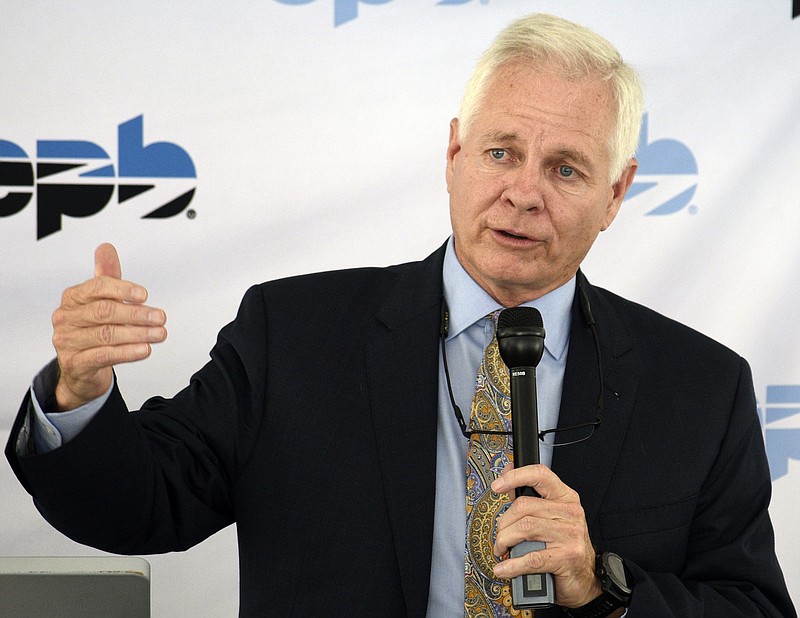Despite its name and birthright, Chattanooga's Electric Power Board earned most of its net income in the past year from its telecommunications business, not its power division.
EPB, the name the former Electric Power Board has adopted as it expanded its utility offerings, enjoyed its biggest growth in customers and net income last year from its fiber optics division rather than its electricity operations.
In the fiscal year ended June 30, EPB had a net income in its power division of $12.7 million on electricity sales of $582.7 million. Power sales were virtually unchanged from the previous year, although profits rose by more than 70 percent from the previous year.
EPB's telecommunications division, which offers internet, video and phone services via the utility's fiber-optic network, reported even higher net income of $31.1 million on revenues of $163.1 million.
EPB's telecom revenues grew nearly 9 percent despite a drop in the number of persons subscribing to EPB's video offerings as a growing number of households "cut the cord" on cable TV. EPB continues to add more internet customers, however, and projects it will top $169 million in telecom revenues this year even while the telecom division sends $38 million to the electric-side of the business to lease fiber optic space on EPB's smart electric grid.
"We're right at about 98,000 customers today in our fiber optics division and getting close to having 100,000 by this fall," EPB President David Wade told the EPB board Friday. "That's a big milestone and one we are going to celebrate."
When EPB launched its fiber optic services in 2009, the city-owned utility projected it would get about 35,000 users. EPB secured a $111.6 million federal stimulus grant the next year - the biggest for a smart grid in the country in the Great Recession stimulus plan - and telecom usage has exceeded projections every year since for EPB.
EPB pioneered the first citywide gigabyte-per-second internet service in the Western Hemisphere in 2010 and began billing Chattanooga as "Gig City." In 2015, EPB upgraded the internet service to 10G service, the fastest of any community-wide network in the country.
"What a blessing that fiber optics has been for us and the community," EPB Chairman Joe Ferguson said.
EPB issued more than $220 million in bonds to build its fiber optic network, but the telecom portion of that debt has since been repaid. EPB's debt coverage ratio for its electric service far exceeds its bond covenant requirements and is projected to improve even more this year, EBP Chief Financial Officer Greg Eaves said.
Although its telecom business has grown, EPB's total electricity sales peaked in 2001.
EPB brags that its smart grid installed with its fiber optic network has helped reduce outages. The improved reliability and the utility's culture as a publicly owned and public service utility has helped EPB earn the top ranking for customer service of all mid-sized utilities in the South by J.D. Power and Associates in each of the past three years, Ferguson said.
"We're very fortunate to have a culture and a staff with a deep passion or getting the job done and serving our customers as these J.D. Power rankings show," he said.
Contact Dave Flessner at dflessner@timesfreepress.com or at 757-6340.
